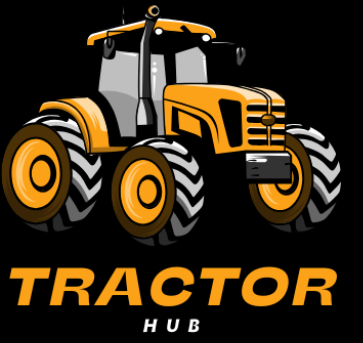If you’re buying, selling, or operating a tractor in Texas, one question you might have is: do tractors have titles in Texas? It’s a good question—and the answer isn’t as simple as yes or no. In Texas, whether a tractor needs a title depends heavily on how it’s used, where it operates, and whether it qualifies as a “motor vehicle” under Texas law.
This article breaks it all down: when tractors need titles, when they don’t, what kind of documentation you do need, and what happens if you take your tractor on public roads. If you’re a farmer, equipment dealer, or just someone buying used farm machinery, read on.
What Is a Tractor, Legally Speaking?
First things first—let’s clarify what we’re talking about. When people say “tractor,” they might mean different things:
- A farm tractor used for plowing fields
- A lawn or garden tractor
- A road tractor (part of a tractor-trailer rig)
Texas law makes distinctions between these machines, and it matters. For the purposes of this article, we’re focusing primarily on farm tractors—agricultural equipment used on farms, ranches, or other private property.
Do Tractors Have Titles in Texas?
Short Answer: It Depends on the Use.
In Texas, most farm tractors do not need a title if they are used exclusively for agricultural purposes on private land. But if you plan to drive your tractor on public roads, use it for non-agricultural commercial activities, or attach it to a commercial trailer, the rules change.
Let’s break this down further.
When Tractors Do NOT Require a Title in Texas
1. Used Exclusively on Private Property
If you’re using your tractor on your own land for farming, ranching, or even maintaining large private property, you do not need to title or register it. In fact, the Texas Department of Motor Vehicles (TxDMV) doesn’t even offer titles for this type of equipment under normal circumstances.
These are legally classified as “implements of husbandry,” and they are exempt from titling.
Implement of husbandry: A vehicle designed and adapted exclusively for agricultural operations and only incidentally operated or moved on a highway.
Because of this classification, farm tractors used solely for farming don’t fall under normal motor vehicle requirements.
2. Used for Tax-Exempt Agricultural Purposes
Texas also offers sales and use tax exemptions for farm equipment used more than 50% of the time for agricultural work. This further supports the idea that these vehicles are not considered traditional motor vehicles requiring titles.
When Tractors DO Need a Title in Texas
While most tractors are exempt, there are specific scenarios where you may need to title or register your tractor:
1. If the Tractor Is Used on Public Roads
If you drive your tractor on public highways, even if only occasionally, and especially if it is pulling a trailer or carrying goods, you may be required to register it. In some cases, that includes obtaining a title and license plate.
Texas allows implements of husbandry to be driven on public roads under limited conditions, such as moving between fields. But this does not make them street-legal by default.
2. If the Tractor Is Used for Commercial Non-Agricultural Purposes
If you’re using a tractor for landscaping services, commercial hauling, or other for-hire work on public land, you may be subject to motor vehicle regulations—including titling, registration, and insurance requirements.
This is especially true for equipment classified as a “road tractor” or “commercial vehicle.” If the vehicle is used in commerce or crosses state lines, it may also be regulated at the federal level.
3. If It’s a Titled Item in a Purchase or Loan
If you’re financing the purchase of a new or used tractor from a dealer or through a bank, a title may be issued as proof of ownership and to protect the lender’s lien. While this isn’t always required by law, lenders often need titling as a condition of the loan.
How to Prove Ownership of a Tractor in Texas
Even if your tractor doesn’t need a title, you still need to document your ownership. Here’s how:
1. Manufacturer’s Certificate of Origin (MCO)
If you’re buying a new tractor, the dealer should give you an MCO. This document includes important details like:
- Make and model
- Serial number
- Original owner
- Date of manufacture
This is like a car’s certificate of origin and serves as proof of new ownership.
2. Bill of Sale
For used tractors, a bill of sale is essential. It should include:
- Buyer and seller information
- Sale date
- Purchase price
- Description of the tractor (make, model, year, serial number)
Keep this document in a safe place—it’s your proof of purchase.
3. Service Records and Photos
While not legal documents, service records and current photos (including visible serial numbers) can help prove ownership and support insurance claims or police reports if the tractor is stolen.
Can You Get a Title for a Tractor in Texas Voluntarily?
Sometimes, yes. While not required, you can request a bonded title or a standard title through the Texas DMV if you want extra legal proof of ownership.
This is useful if:
- You plan to sell the tractor
- You’re financing or insuring the tractor
- You intend to drive it on public roads more often
To get a bonded title, you’ll need to submit an application, pay a fee, and provide a surety bond. This process confirms you’re the rightful owner, even if you don’t have an original MCO.
What About Trailers Pulled by Tractors?
Good question. In Texas, trailers pulled by tractors may or may not need titles depending on their size, weight, and use.
- Farm trailers under 4,000 pounds generally do not need a title or registration.
- Farm trailers over 4,000 pounds used to haul agricultural products may need registration and are eligible for titling.
If you’re pulling a commercial load or using a trailer on public roads, you should check with the Texas DMV for specific requirements.
Driving a Tractor on Public Roads: What You Need to Know
If you do plan to take your tractor on Texas roads, there are a few legal requirements you must meet:
1. Slow-Moving Vehicle (SMV) Emblem
Texas law requires tractors operated on public roads to display a slow-moving vehicle emblem—a reflective orange triangle—to warn other drivers.
2. Lighting Requirements
You’ll also need:
- Two headlights
- One red tail light
- Flashing hazard lights or turn signals (in most cases)
These help with visibility during dawn, dusk, or bad weather.
3. Insurance and Registration
While insurance isn’t always required for tractors operated only on private property, you should definitely consider insuring your tractor—especially if you drive it on public roads or finance the purchase.
Final Thoughts: Do Tractors Have Titles in Texas?
To sum it up:
- Most farm tractors in Texas do NOT need titles if used strictly for agricultural purposes on private property.
- Tractors used on public roads or for commercial purposes MAY need titles and registration.
- You should always maintain documentation like a bill of sale or MCO to prove ownership.
- Titles can be obtained voluntarily in some cases, especially when financing or operating the tractor off the farm.
If you’re unsure about your specific case, contact your local Texas DMV or county tax assessor-collector for the most accurate, up-to-date guidance.


Pingback: Do Tractors Have Titles in Missouri? | 10 Things To Know